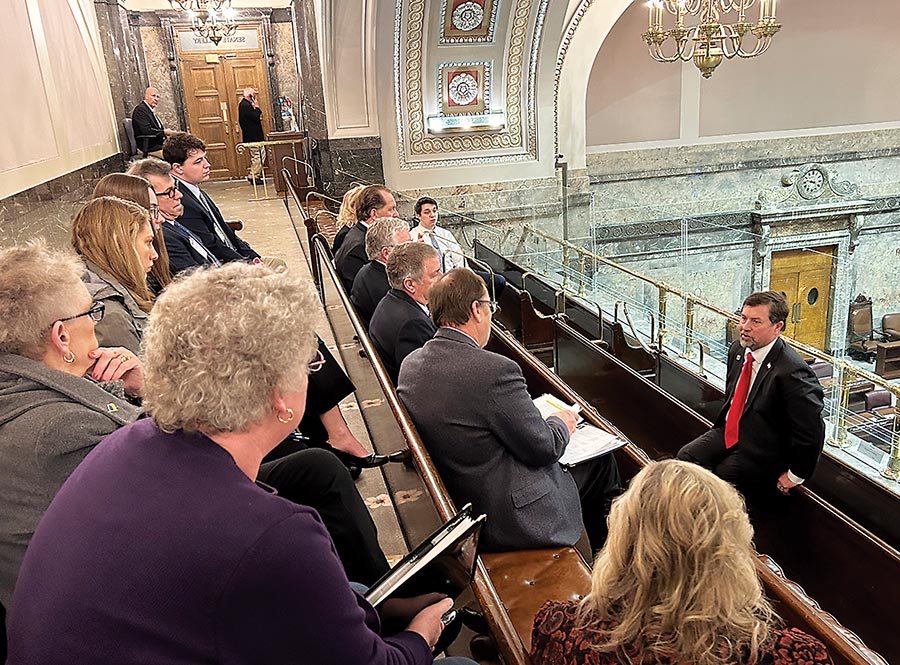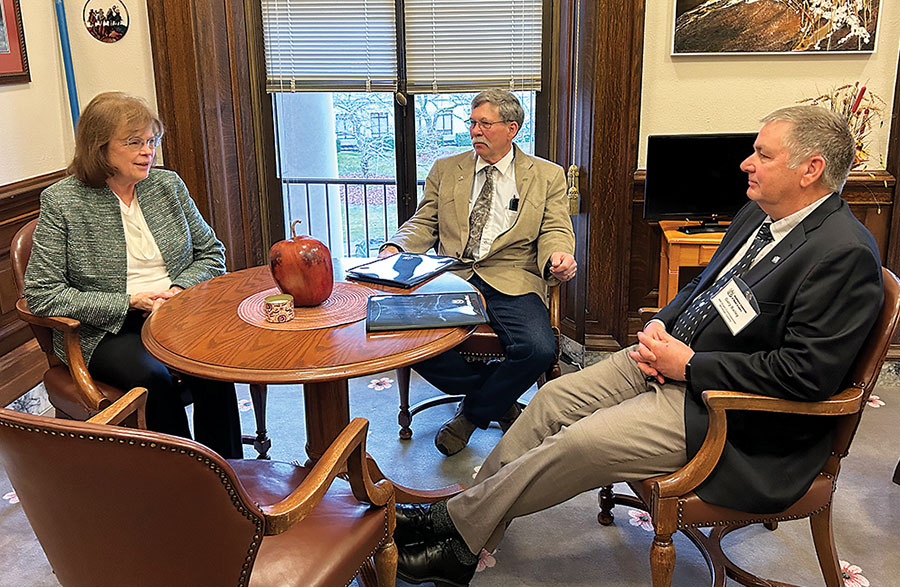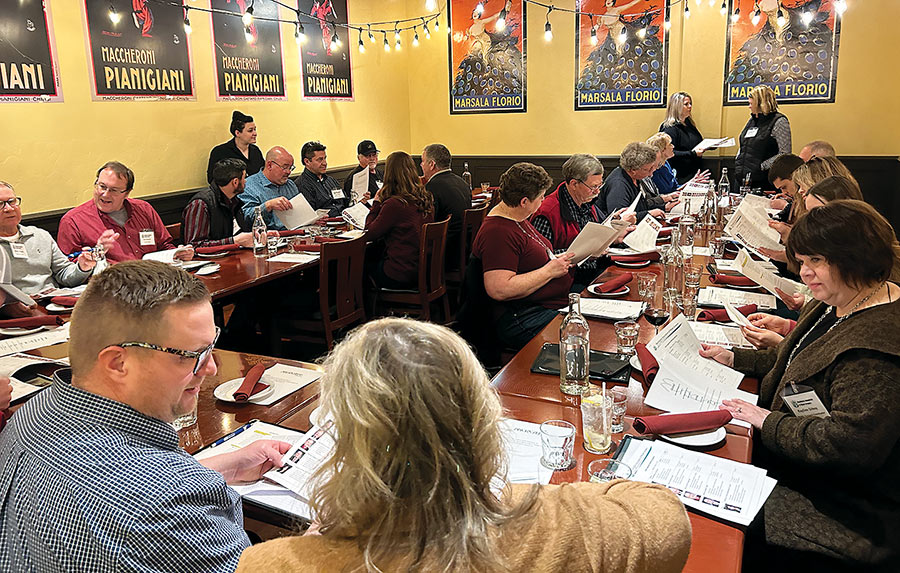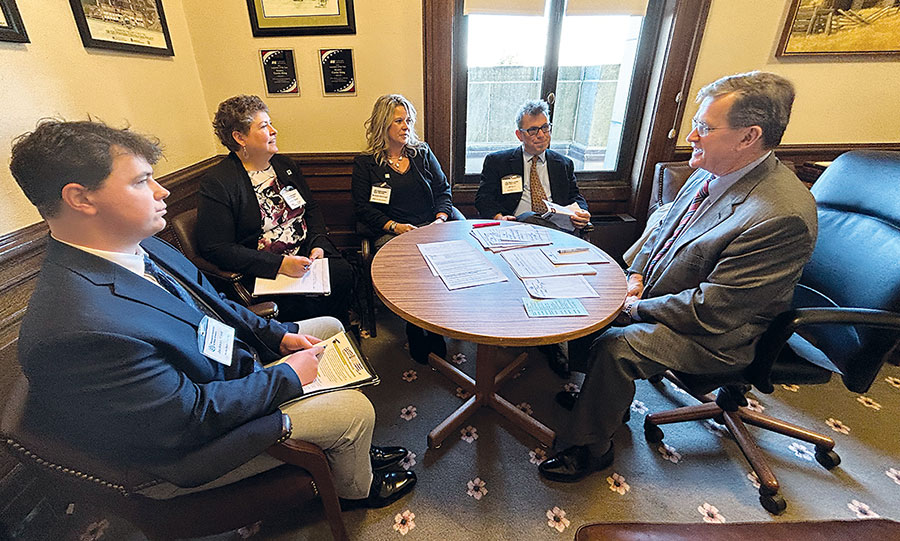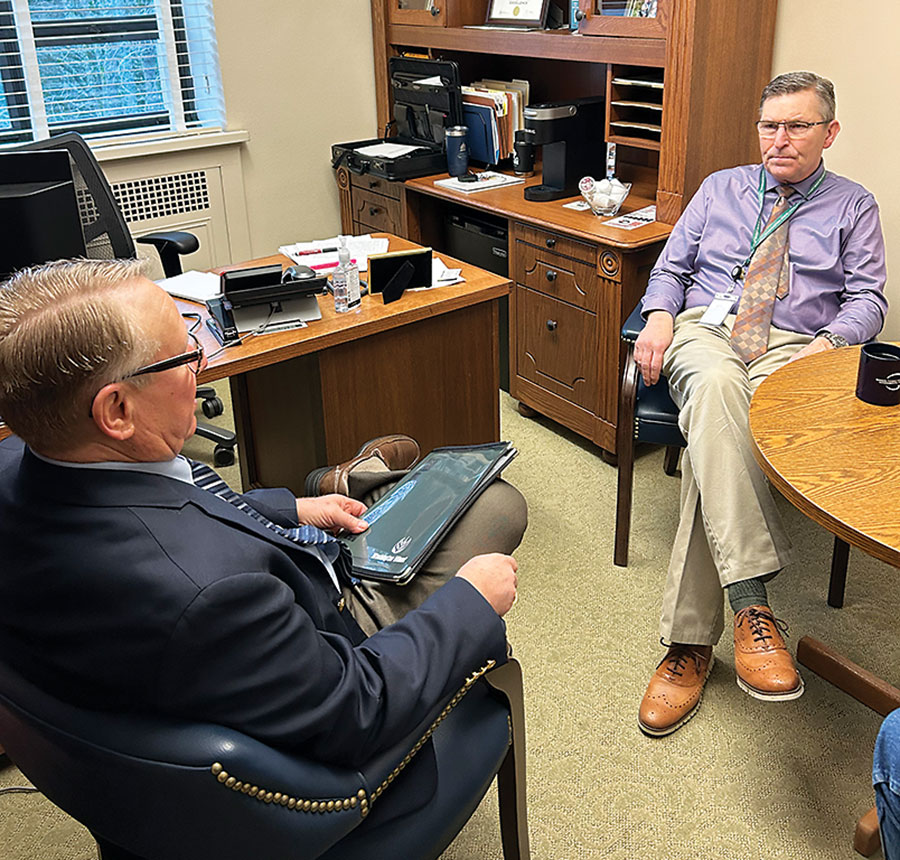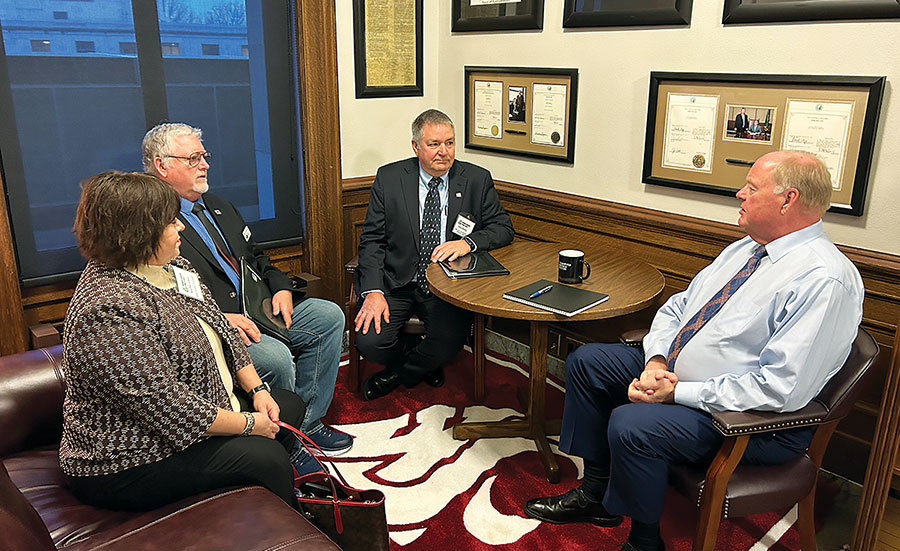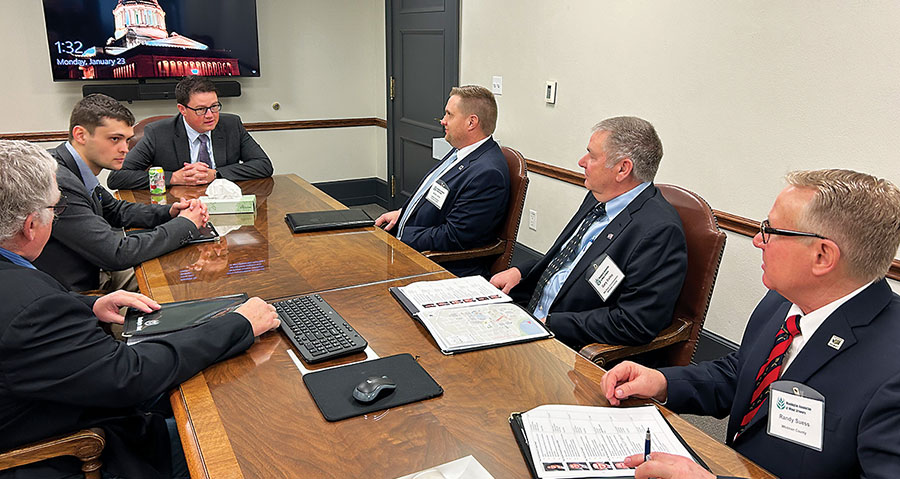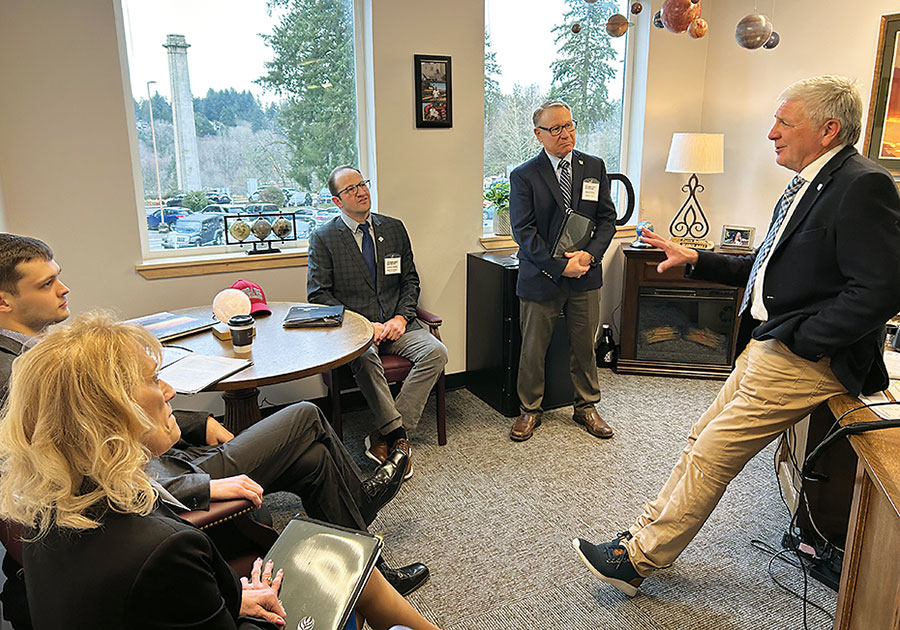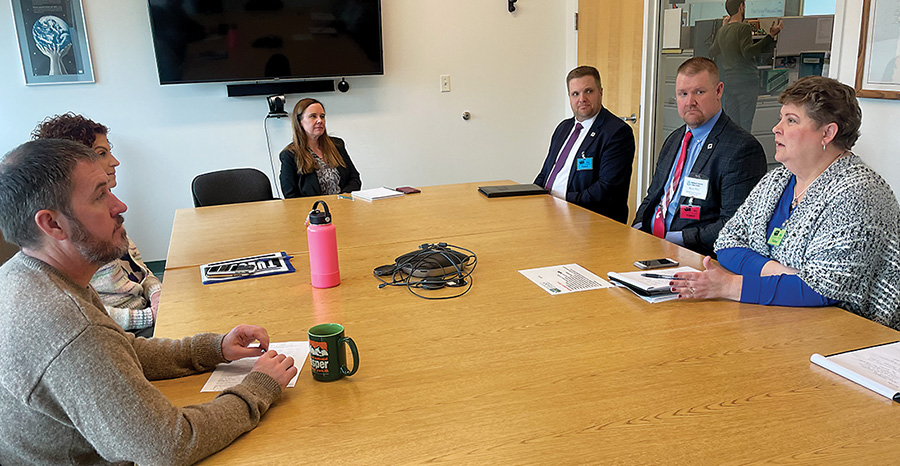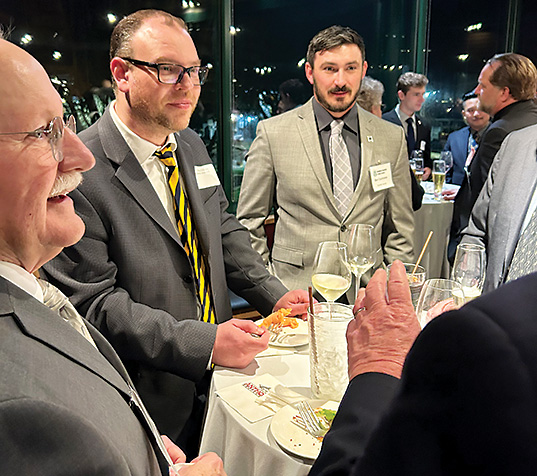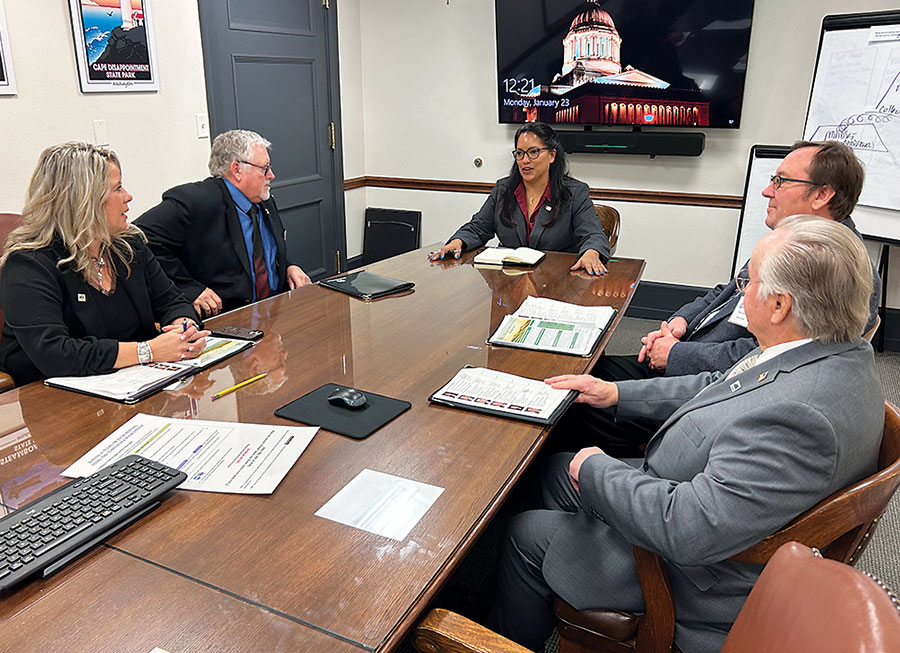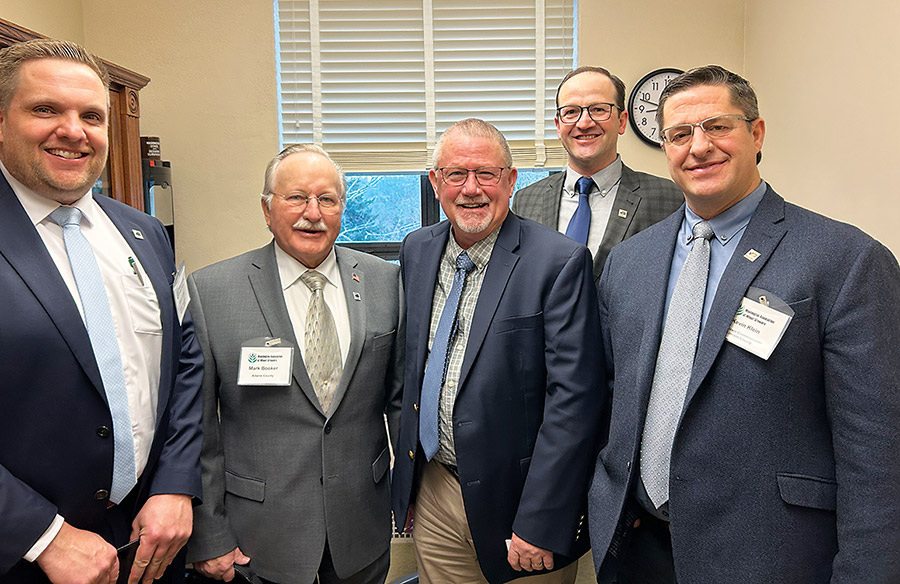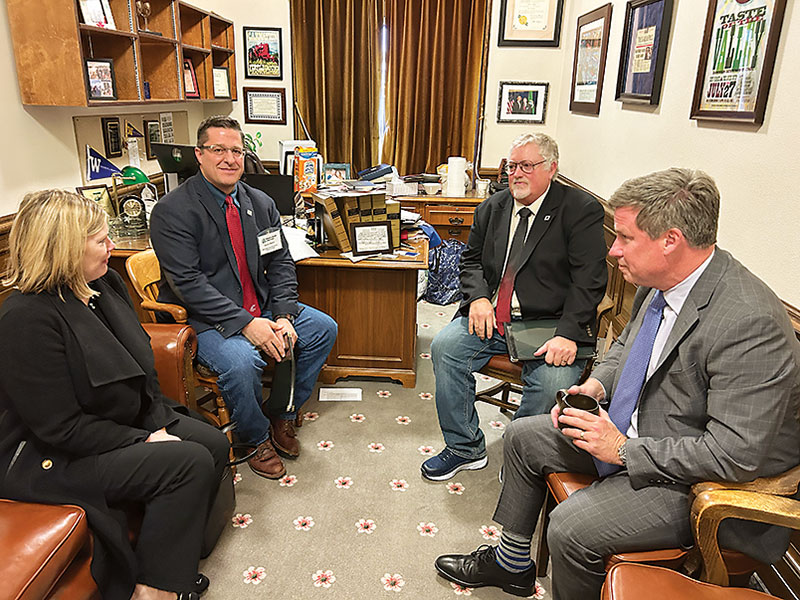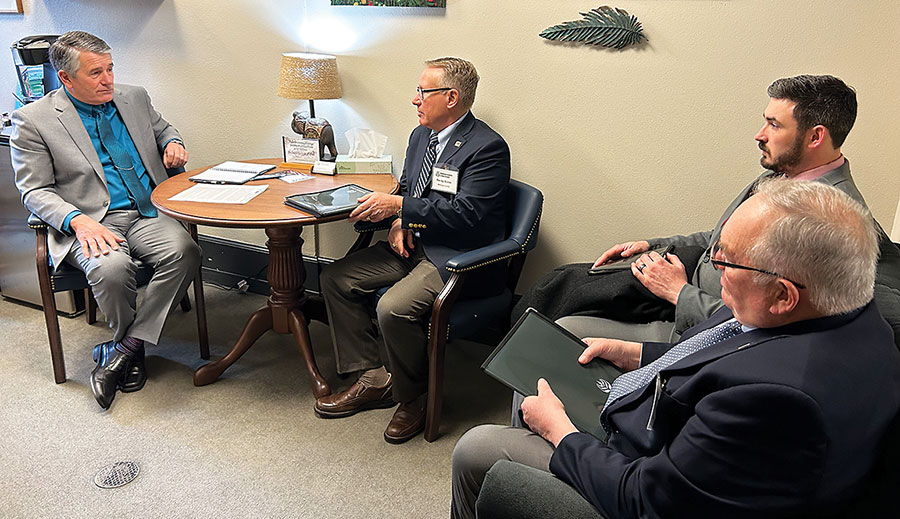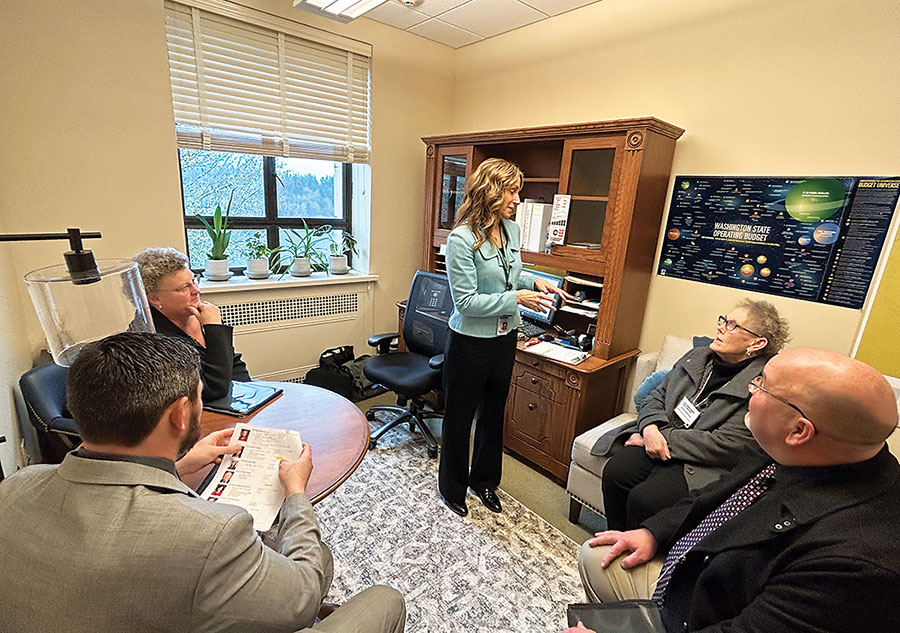OLYMPIA DAYS 2023 Growers, landlords meet with legislators to advocate for wheat industry
2023February 2023
By Trista Crossley
Editor
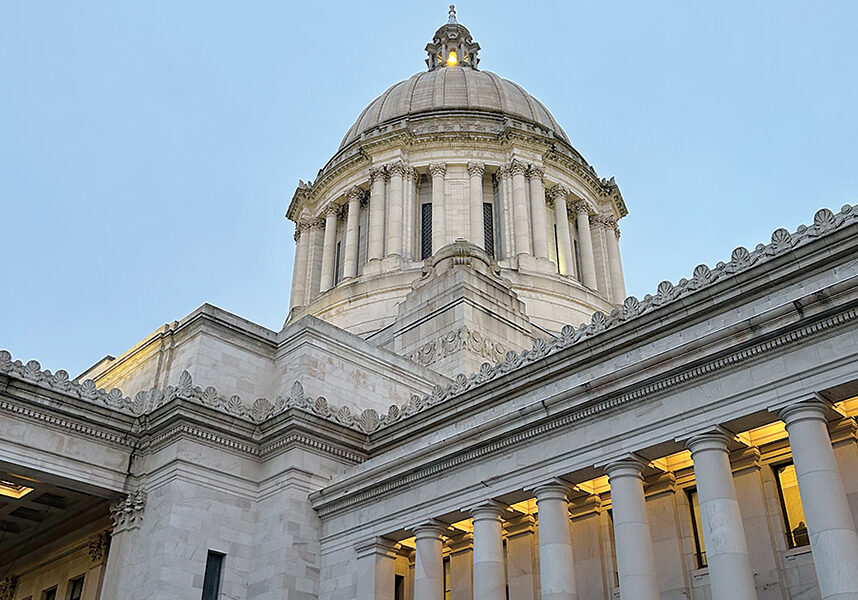
More than 30 wheat growers, landlords and industry leaders made the trip to Olympia last month to take part in the Washington Association of Wheat Growers’ (WAWG) annual lobbying visit, the first time since 2020 they’ve been able to meet with state legislators in person on Capitol grounds. Over the course of a day and a half, they met with 45 legislators from both sides of the aisle and leaders from several departments, including Agriculture, Ecology, and Transportation. Growers also met with Ruth Musgrave, Gov. Inslee’s senior policy advisor for natural resources.
“It was nice to be able to be on campus and meet legislators in person again,” said Michelle Hennings, WAWG’s executive director. “Advocating for the wheat industry is much more effective when growers can sit down with a legislator to talk face to face rather than through a computer screen. We had a great group of growers who are passionate about the industry and invested their time to help protect it for future generations. Thank you to everybody who made the trip.”
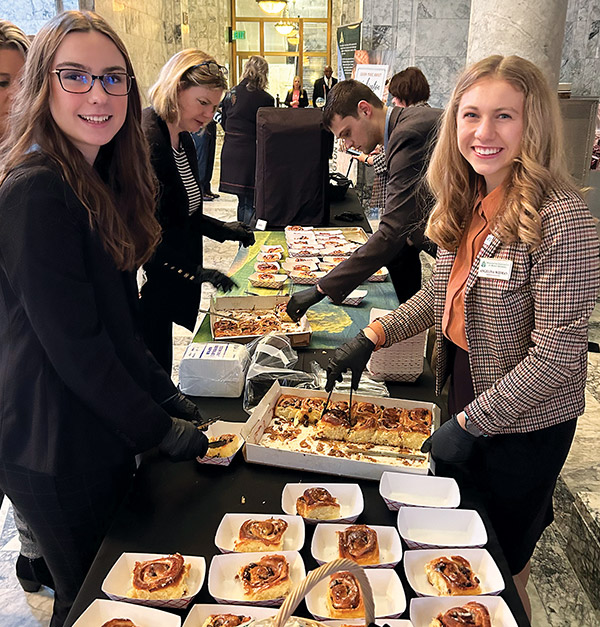
After arriving in Olympia, growers met over supper to hear WAWG’s priorities, get talking points and review the meeting schedule with WAWG lobbyist, Diana Carlen. One of the industry’s biggest concerns currently is that a mechanism to exempt certain industries from surcharges on fuel as a result of the Climate Commitment Act and the Clean Fuel Program has not been put in place.
When the Legislature passed both the cap and trade and low carbon fuel standard legislation last year, they specifically exempted fuel used on the farm and fuel used to transport products to market. The laws went into effect on Jan. 1. Fuel producers have begun adding a fuel surcharge to cover their compliance obligations from the new carbon laws, and that surcharge is already being passed to consumers. In their meetings, growers explained the situation to legislators and asked for their help in urging Ecology to meet with farmers and the fuel industry to develop a system for farmers to be refunded for the higher fuel prices they have already paid and a way going forward that ensures farmers can utilize the exemptions.
“Growers use fuel on their farms all year, and it’s critical that we be able to fill our tanks without being unlawfully charged a fuel surcharge or having to apply for a refund at a later date,” said Andy Juris, WAWG president. “While we had hoped that the rule-making regarding the new cap-and-trade laws would have reflected the ag exemptions specifically written into the legislation, we are now hopeful that both lawmakers and Ecology understand the urgency to fix this problem now and hopefully ensure future legislation is more carefully and thoughtfully implemented.”
Another major priority for wheat growers was addressing concerns about the governor’s new riparian buffer bill, which sets up a voluntary grant program. While the bill is an improvement from last year’s Lorraine Loomis Act that mandated buffers up to 250 feet wide along streams and floodplains, there is still concern on how the new program is structured, especially designating Fish and Wildlife guidance documents as the best available science to establish the standards in the program. The industry feels there needs to be more focus in the bill on working with landowners, more flexibility in administering the grant program, more time given to see if the program is successful, and the need to define metrics for measuring how successful the new program is.
Last year, because lawmakers’ offices were still closed to the public, wheat growers instead handed out cinnamon rolls and coffee outside the Capitol building. It was such a success that growers repeated the effort this year. More than 1,000 pastries were given out, along with wheat facts and other industry handouts.
WAWG’s top 2023 state legislative priorities are:
- Preserving Washington’s economic competitiveness. Carbon policies should ensure that Washington state retains its economic competitiveness and does not disadvantage Washington farmers. When the Legislature passed the cap-and-trade and low carbon fuel standard legislation, it exempted certain agricultural fuel uses for on the farm and transporting agricultural products. A mechanism to implement these exemptions is critical to ensure that farmers do not see increased fuel prices as agriculture relies heavily on fuel and, as a price-taker, cannot pass on these costs. These exemptions should also be made permanent.
- Protecting the future viability of ag through voluntary conservation programs. WAWG is supportive of voluntary conservation programs that offer flexibility and fairly compensate farmers for riparian protection. WAWG stands in firm opposition to programs that mandate riparian buffers based on site potential tree height as it threatens the future viability of agriculture by removing significant portions of productive farmland out of production. WAWG supports the continuation of the governor’s riparian task force to continue discussions on protecting salmon while also ensuring the viability of agriculture. WAWG also supports full funding of voluntary conservation programs like the Conservation Reserve Enhancement Program and the Voluntary Stewardship Program.
- Preserving the Snake River dams. WAWG supports keeping the lower Snake River dams intact as they are vital to Washington and the nation’s economy and transportation infrastructure. WAWG also supports funding for maintaining the Columbia-Snake River System. Removal of the four lower Snake River dams would significantly increase carbon emissions that contribute to climate change and jeopardize health, safety and livelihoods in already economically fragile local and regional economies. WAWG supports the findings in the federal EIS and opposes any state, legislative or administrative effort to remove or disrupt the Snake River dam system.
- Pesticide safety. Access to pesticides is essential to keeping Washington agriculture productive and competitive on the global stage. WAWG supports the professional use of crop protection products, which have been shown to be safe and effective through science-based research.
Thank you to all the growers, landlords and industry leaders who participated in the 2023 Olympia Days trip:
Gary Bailey, Whitman County
Sarah Bodine, Snohomish/Adams County
Mark Booker, Adams County
Diana Carlen, WAWG lobbyist
Mike Carstensen, Lincoln County
Casey Chumrau, WGC CEO
Larry Cochran, Whitman County
Ben Cochrane, Franklin County
Casey Cochrane, Franklin County
Gil Crosby, Spokane County
Trista Crossley, Wheat Life editor
Sophie Doumit, WAWG assistant lobbyist
KayDee Gilkey, WAWG outreach coordinator
Marci Green, Spokane County
Michelle Hennings, WAWG executive director
Andy Juris, Klickitat County
JP Kent, Walla Walla County
Jackson Kent, Walla Walla County
Michele Kiesz, Adams County
Kevin Klein, Lincoln County
Howard McDonald, Grant County
Jim Moyer, Columbia County
Mary Palmer Sullivan, WGC vice president
Ryan Poe, Grant County
Anthony Smith, Benton County
Randy Suess, Whitman County
Shaley Tiegs, 2023 Wheat Ambassador
Ben Tompkins, Walla Walla County
Janet Walthew, Snohomish/Adams County
Angelina s, 2023 Wheat Ambassador
Tom Zwainz, Lincoln County
